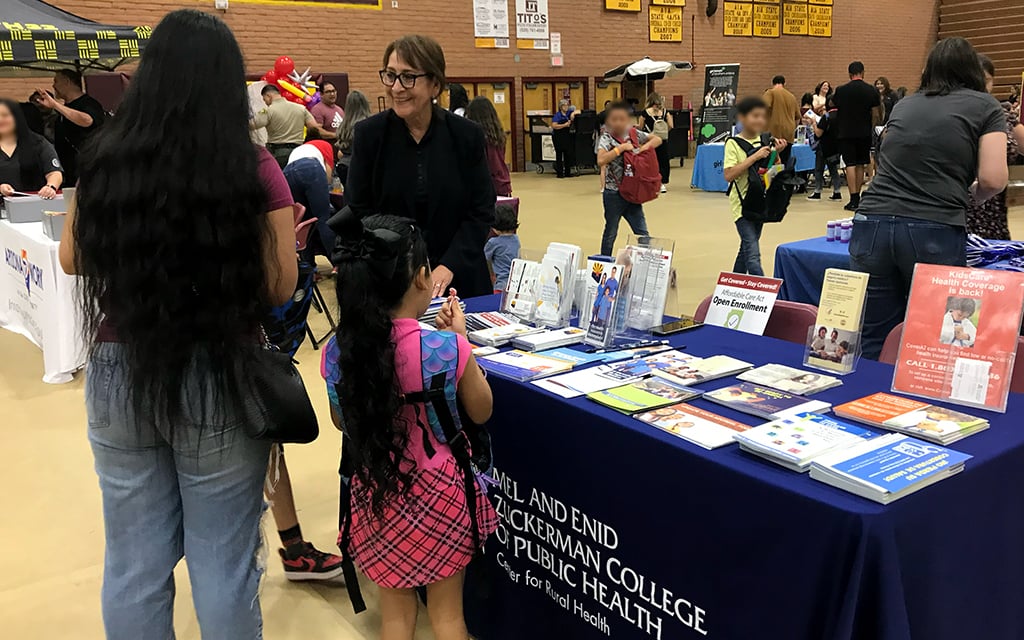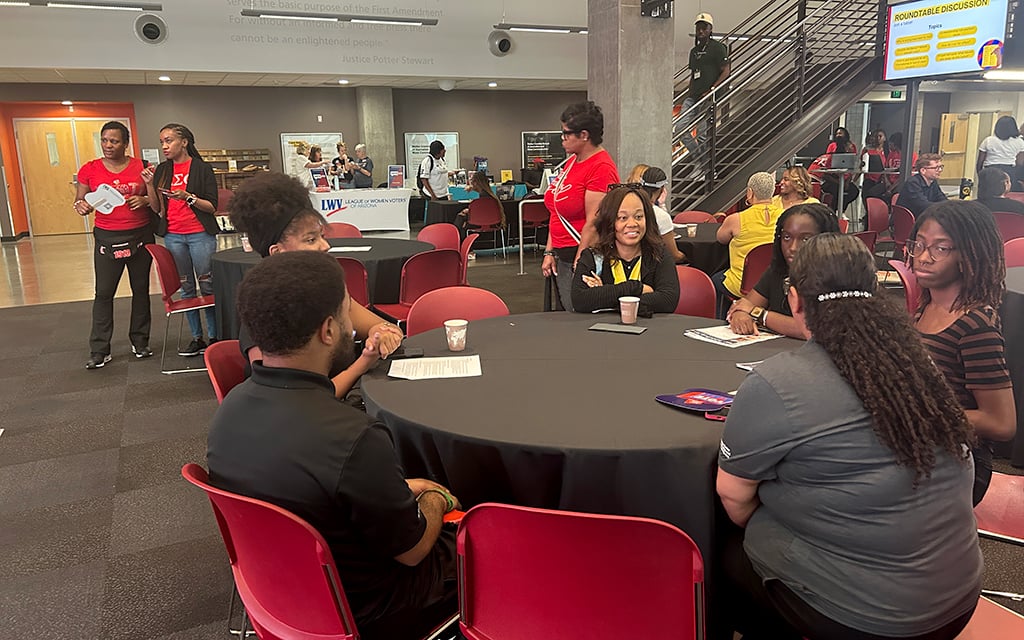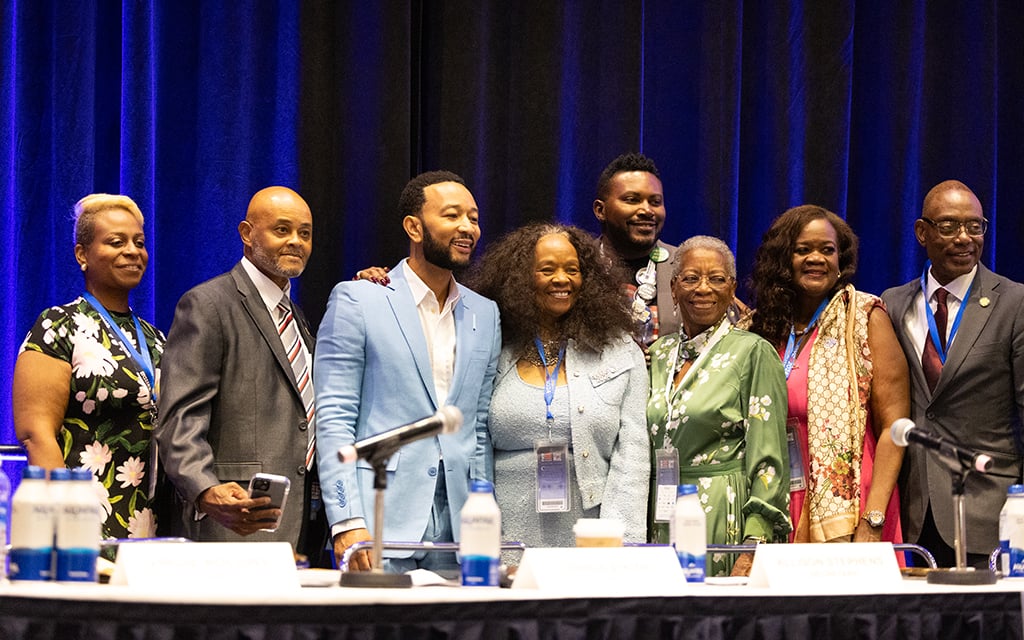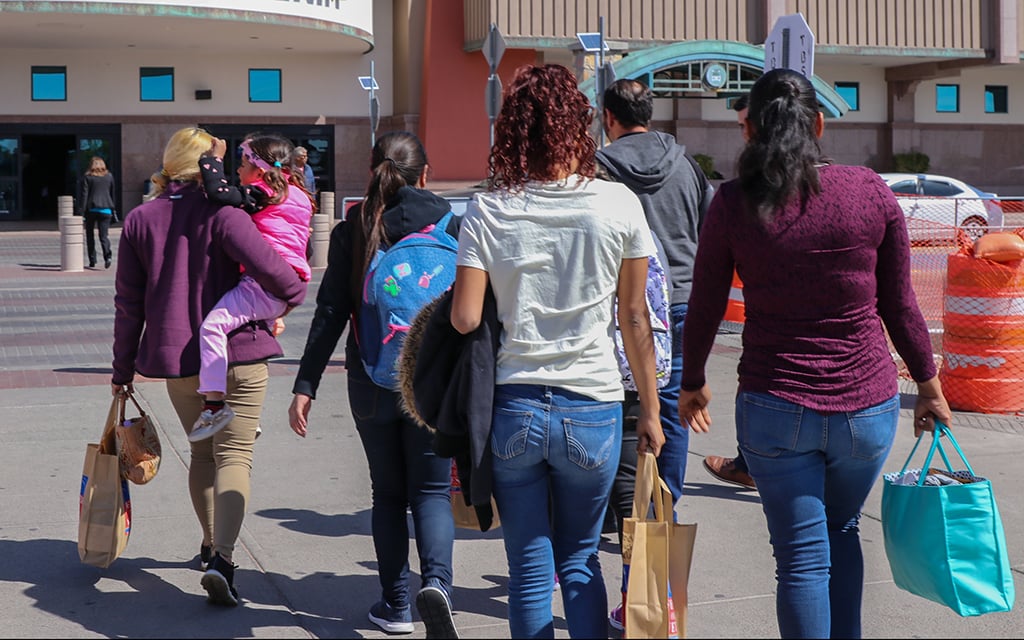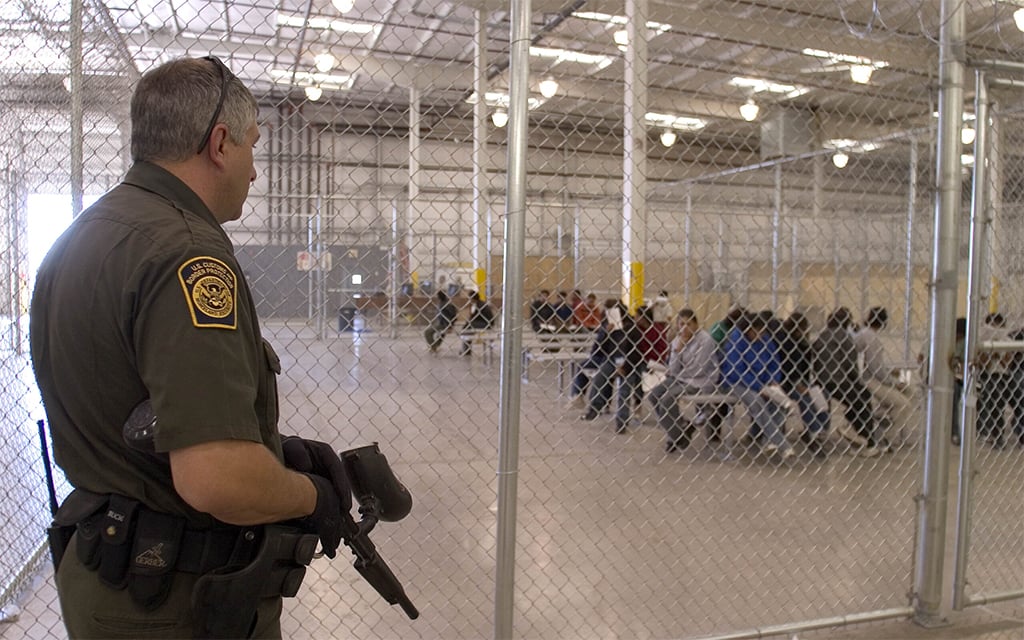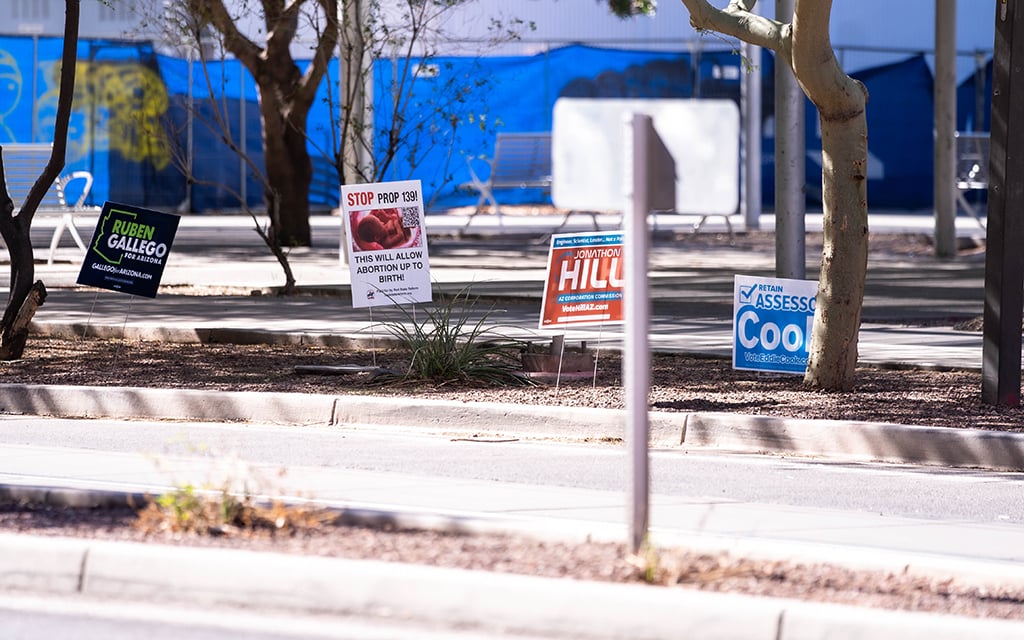WASHINGTON – Maria Losoya isn’t a doctor. She can’t treat patients, and she can’t do surgeries. But in southern Arizona’s border communities, she performs a special kind of life-saving health care. She’s an expert at navigating the health insurance marketplace – in English and Spanish.
It’s a strength that has made Losoya a trusted face in her home of Santa Cruz County, where nearly one in three residents were uninsured in 2022 – the highest rate in the state, according to the National Institutes of Health. Day and night, community members call Losoya from hospital rooms to see how they can afford the treatment they need, from emergency care to chemotherapy.
In her work, Losoya hopes to overcome the issues that have blocked people in the primarily Spanish-speaking county from accessing insurance and medical care, from language barriers to coverage misinformation.
“A lot of people were dying,” she said.
Losoya works as a navigator – a local community member who helps residents afford medical care by steering them through the health insurance enrollment process. Her position was created by the Affordable Care Act to help marginalized communities overcome barriers in accessing health insurance.
In Arizona, navigators target a range of underserved communities, from Native Americans who live on parts of their tribal nations without internet access to immigrants who don’t speak English as their primary language.
Since navigators started their work in 2013, the rate of uninsured Arizonans fell from over one in six to around one in 10 in 2022.
Navigators provide their services for free to community members. Arizona’s navigators depend on federal funds, but this money hasn’t always been stable.
Funding has risen and fallen dramatically depending on who’s in the White House. With the future of the ACA at stake in this year’s presidential election, navigators are bracing for the outcome of Election Day – and what it’ll mean for the communities they help. Navigators said that as funding moves up and down, so does the number of people in their communities who are able to access life-saving treatment.
“We’re able to serve less people when the funding goes down, and that in turn causes more people to get more sick and to die and to not have access to care,” said Layal Rabat, who directs navigators at the Phoenix-based nonprofit Asian Pacific Community in Action (APCA).
Funding cuts
Navigators are riding the wave of a five-year, $500 million investment the Biden-Harris administration announced this summer. So far, $100 million from this funding package has reached navigators nationwide. Arizona’s navigators received a $3.5 million chunk of this money in August and are supposed to see the remaining share through 2029.
But that might not happen if Republican presidential nominee Donald Trump takes office, according to KFF Vice President Kaye Pestaina. She said that as president, Trump would be able to change the promised funding or eliminate it entirely. Trump’s official presidential platform includes no mention on what he would do with navigator funding if he were to win another term.

Navigators Natalie Huynh, left, and Teng Bounxayavong from Asian Pacific Community in Action distribute forms about health insurance enrollment at an event geared toward Arizona’s Marshallese community in Tempe on Aug. 27, 2022. (Photo courtesy of Asian Pacific Community in Action)
However, Pestaina predicted that Trump would walk back the remaining $400 million the Biden administration has promised for navigators if he were elected again, given his efforts to weaken, repeal and replace the ACA as president.
During his administration, Trump slashed navigator funding by nearly 85% – from a high of $63 million in 2016 to just $10 million in 2020. Annual Marketplace health insurance enrollment also fell for the first time since the ACA was implemented.
Daniel Derksen is the director of the Arizona Center for Rural Health, a navigator organization that targets the state’s rural communities. He said that’s because funding cuts keep navigators from reaching the “most vulnerable” communities. They either lose coverage or remain uninsured as a result, he said.
At APCA, the decline in funding meant the nonprofit also had to cut its team. APCA’s navigators, like Natalie Huynh, specifically help the state’s growing population of Asian American, Native Hawaiian and Pacific Islander Arizonans access coverage and affordable health care.
When Huynh immigrated to the U.S. from Vietnam, the American health insurance system was completely foreign to her. Now, she’s an expert at explaining health insurance policy to other Asian American immigrants who are new to the system – in English, Vietnamese, Cantonese and Mandarin.
“They trust me because I speak their language,” Huynh said.
APCA navigator Liza Merrill said the nonprofit used to have a team of 17 navigators, but now, it can afford just five.
“There’s not much funding to go around, but the work, it has become even more,” she said. “With the election, we’re all waiting for what happens.”
Harris and Trump on the ACA

The Affordable Care Act became a primary sparring point between nominees Donald Trump and Kamala Harris at the presidential debate on Sept. 10, 2024. While Harris affirmed her support for the ACA, Trump said he had “concepts” of a “better and less expensive” plan to replace the landmark 2010 health reform law. (File photo by Emma Jeanson/Cronkite News)
The ACA has become a front-and-center point of contention between Trump and Democratic nominee Kamala Harris in the leadup to Election Day. While Harris has stood by the act, Trump has criticized it for being overly expensive.
As a part of the Biden administration, Harris has supported its efforts to strengthen the ACA, including the over $387 million in funding the administration has given to navigators. With the funding boosts, Health Insurance Marketplace enrollment has also increased, hitting a record level in January.
On the campaign trail for this year’s election, Harris has abandoned the progressive-backed “Medicare for All” plan she supported as a presidential candidate for the 2020 election. Instead, she has since promised to work on “expanding and strengthening” the ACA as president – a policy flip-flop that Trump has criticized her for.
As a part of her plan to fortify the ACA, Harris has pledged to permanently expand access to and increase financial aid for health insurance premiums, both temporary changes made under the Biden administration.
Trump has made conflicting statements on whether he would allow the ACA to stand if he were president again. In April, Trump said he was “not running to terminate the ACA” and instead wanted to make it “much better, stronger and far less expensive.”
But during last month’s presidential debate against Harris, Trump lambasted the ACA as “lousy health care” and said he had “concepts of a plan” to replace it. Despite this, he also said he “saved” the ACA when he was president – even though he unsuccessfully tried to repeal and replace it with different plans that could have resulted in millions more Americans going without insurance.
While many Arizona navigators say the ACA needs improvement, they say a repeal seems unthinkable: It would upend their work by eliminating their positions and funding. But the possibility of a repeal has become a key question in the leadup to the election – and they hope to be prepared for what the answer will be after Election Day.
“The work is still going to be there,” Merrill said. “The title is going to be different, and there might not be any money in it, but people who actually do the work for (their) community, they don’t do it for the money or the title. You do it because it’s the right thing to do.”

